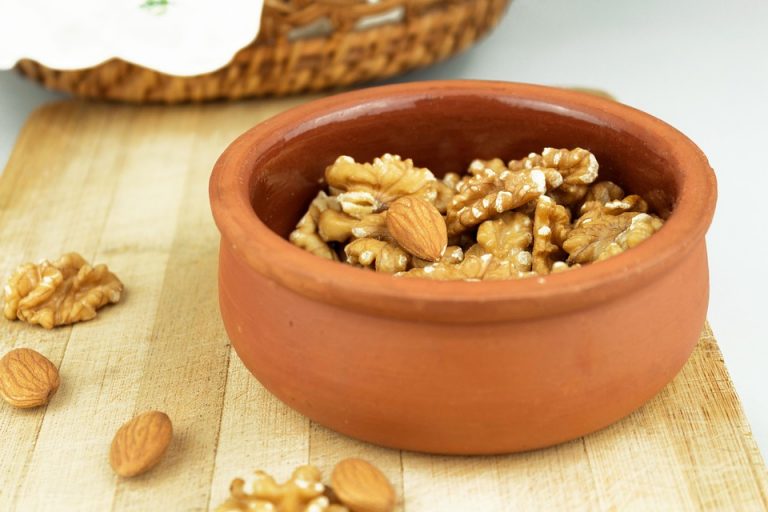5 Reasons Almonds Boost Bone Strength Naturally
Midday slump meets your favorite mug. As you sip your espresso, your mind wanders—you’re thinking about your next health goal. Perhaps you’ve been wondering how to naturally bolster your bone strength. Have you considered the humble almond? This tiny nut packs more than just a satisfying crunch; it offers a range of benefits for your bone health. Let’s discover five reasons why almonds can be a valuable ally in your quest for strong bones.
Contents
1. Rich Source of Vital Nutrients
Almonds are abundant in essential nutrients that contribute to bone strength, particularly calcium, magnesium, and vitamin E.
-
Calcium is a crucial component of bone health. It gives bones their strength and structure. A 1-ounce serving of almonds contains about 76 mg of calcium, contributing to your daily needs, especially if you’re following a plant-based diet.
-
Magnesium plays a key role in converting vitamin D to its active form, which helps with calcium absorption. In a study published in the Journal of Bone and Mineral Research, researchers found that higher magnesium intake is positively associated with bone mineral density among women aged 50 and above (Nielsen, 2016). This highlights magnesium’s importance not just for metabolic health, but also for maintaining strong bones.
-
Vitamin E acts as an antioxidant, protecting your bones from oxidative stress. The consumption of vitamin E has been linked to improved bone mineral density in postmenopausal women (Mikulski, 2020). By including almonds in your diet, you’re tapping into a source of this powerful vitamin.
While almonds are not the only source of these nutrients, their convenient form makes them easy to incorporate into snacks or meals.
2. Promotes Optimal Vitamin D Levels
Vitamin D is indispensable for bone health, as it facilitates calcium absorption in the gut. While almonds don’t contain vitamin D, they can help improve the absorption of this vital nutrient when consumed alongside vitamin D-rich foods.
A study in the American Journal of Clinical Nutrition observed that dietary magnesium is crucial for vitamin D metabolism (Wang, 2017). Since almonds are high in magnesium, they can help bolster your vitamin D levels, especially if you’re getting a modest amount from sun exposure or your diet.
To leverage this synergy, consider snacking on almonds along with fortified cereals or dairy products rich in vitamin D. This combination can contribute to your overall bone health, helping ensure you’re getting the most out of the nutrients in your diet.
3. High in Antioxidants
Oxidative stress can negatively impact bone density, leading to conditions such as osteoporosis. Almonds are rich in antioxidants, particularly flavonoids and phenolic acids, which help combat oxidative damage.
One study that appeared in Free Radical Biology and Medicine found that antioxidant-rich diets significantly improved bone density in animal models (Rochette, 2019). Although this study was performed on animals, it emphasizes the potential role of antioxidants in preserving bone health.
Including almonds as a regular part of your diet can help mitigate oxidative stress, providing a natural strategy to protect your bones over time.
4. Supports Muscle Function
Muscle health is intrinsically linked to bone strength; stronger muscles can help support robust skeletal structures. Almonds contribute to muscle function due to their high protein content. A one-ounce serving contains about 6 grams of protein, which is essential for muscle repair and growth.
Moreover, almonds provide potassium and magnesium, important minerals in maintaining proper muscle contraction and relaxation. A 2018 study in the European Journal of Nutrition indicated that higher dietary protein intake is associated with better muscle health in older adults, which in turn can help prevent falls and fractures (Bauer, 2018).
Incorporating almonds into your pre- or post-workout snacks can aid your muscle function while simultaneously supporting your bones.
5. Beneficial for Weight Management
Maintaining a healthy weight is crucial for bone health, as excess weight can put additional stress on your skeletal system. Almonds can play a role in weight management due to their satiating properties.
Research published in Nutrition & Metabolism shows that snacking on almonds can lead to lower overall calorie consumption throughout the day (Holt et al., 2016). The combination of protein, fiber, and healthy fats makes almonds filling, helping you stave off excess hunger and manage caloric intake.
By incorporating almonds into your meals, you not only enjoy a nutrient-rich snack but also promote balanced weight, indirectly benefitting your bone health by reducing strain on your skeletal system.
FAQs
1. How many almonds should I eat for bone health?
A serving size of about 1 ounce (approximately 23 almonds) is often recommended. This provides a good balance of beneficial nutrients without excessive calories.
2. Can I rely solely on almonds for my calcium needs?
While almonds are a good source of calcium, they should be part of a varied diet that includes other calcium sources like dairy, leafy greens, or fortified foods to meet your daily needs effectively.
3. Are there any downsides to eating too many almonds?
Excessive consumption can lead to digestive issues or contribute to weight gain, given their caloric density. Moderation is key—stick to a serving size for balanced nutrition.
4. Can almonds help if I’m already facing bone health issues?
While almonds can contribute to better bone health, they are not a substitute for medical treatment. If you have existing bone health concerns, consult a healthcare professional for tailored advice.
Conclusion
The small almond is a mighty nut indeed. Rich in essential nutrients, antioxidants, and satiating properties, they contribute positively to your bone health journey. Including almonds in your daily diet can be as simple as tossing a handful into your morning oats or enjoying them as a midday snack.
As you ponder your next health steps, remember that no single food will do the heavy lifting alone. Rather, it’s the collective efforts across your diet and lifestyle that build solid bone strength. Embrace the transformative power of nutritious choices—your bones will thank you.
References
- Nielsen, F. H. (2016). Magnesium, bone mineral density and osteoporosis. Journal of Bone and Mineral Research.
- Mikulski, A. (2020). Vitamin E and its role in bone health: a review. Nutrients.
- Wang, Y. (2017). The role of magnesium in the metabolism of vitamin D. American Journal of Clinical Nutrition.
- Rochette, L. (2019). Antioxidants and bone health: a new perspective. Free Radical Biology and Medicine.
- Bauer, J. D. (2018). Protein and muscle health in older adults. European Journal of Nutrition.
- Holt, S. H. A., et al. (2016). Almond consumption and weight management. Nutrition & Metabolism.
Get Your FREE Natural Health Guide!
Subscribe now and receive our exclusive ebook packed with natural health tips, practical wellness advice, and easy lifestyle changes, delivered straight to your inbox.





